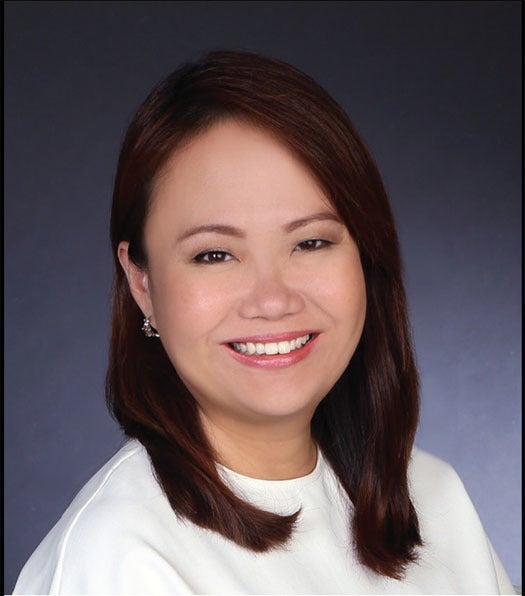
Helen Saada-Ching
TRANSACTION CONTRACTING, APAC LEAD
ACCENTURE LEGAL GROUP
SINGAPORE
What brought you to Accenture, and what do you like most about being in-house counsel?
I started my legal career in Israel. A week after qualifying as a solicitor and advocating to the Singapore Bar, I was in Tel Aviv armed with a photocopy of the Israel chapter of the Martindale-Hubble directory. I ended up living and working in Israel for many years during the 1.0 dot-com boom for the law firms of Herzog Fox Neeman, and later Gross Kleinhendler and Hodak, working on primarily technology deals.
Prior to moving back to Singapore to join Accenture, I was working as China counsel to Amdocs, an NYSE-listed telecom services company. On one deal I negotiated for my previous company, an Accenture lawyer was my counterpart on the other side of the table, and I remember being very favourably impressed with how constructive he was, unlike the typical aggressive winner-take-all approach I encountered with other company lawyers. When I joined Accenture, one of the many trainings that I had available to me was a three-day in-person course on The Accenture Way to Negotiate, led by a dedicated facilitator from Accenture’s Centre of Excellence for Negotiations. In line with Accenture’s mission to help improve the world we live in, we strive to always be unconditionally constructive in our negotiations with our clients. This philosophy is one of the many things I love about working for Accenture.
After giving birth to our first child, the urge to return home to Singapore to be with my family became increasingly hard to ignore. Fortuitously, Accenture Singapore was still hiring despite the unfolding of the financial crisis back in 2008. I got the job and moved my family back to Singapore. This year marks 10 years with Accenture.
I love being in-house because it provides opportunities to make an impact, to learn continuously, and to stretch my capabilities. In my early years, as an individual contributor, I loved being able to deep dive and learn all about the industry that I supported, be it telecommunications or, later on, financial services. Since I started my legal career in Israel, the original startup nation, I have always specialized in the technology sphere. As I moved up the management ranks, I came to realize that to be a good leader, I needed to master myself first. I read voraciously — management and personal development books offer useful signposts to guide me on my leadership journey. I keep the words of Clayton Christiansen in mind daily, that management can be the noblest profession if practised right because of the potential impact for good that anyone in a leadership role can have on her or his team.
As counsel for a multinational company, what challenges do you currently face, and how are you addressing them?
I am responsible for 40-odd deal lawyers scattered across 10 cities in Asia Pacific: Tokyo, Yokohama, Shanghai, Beijing, Hong Kong, Singapore, Jakarta, Bangkok, Sydney, and Melbourne. My team supports Accenture to contract for business in 11 markets, in English, Bahasa Indonesia, Thai, Mandarin, and Japanese. The diversity in my team spans geographies, languages, and cultures. To make sure that everyone understands where we want to head for in the next stage of our transformation agenda, a clear communications strategy is a must. For me, this means quarterly all-hands video conferences, a regular deal stories bulletin, and weekly catch-ups with my team leads and senior lawyers.
Accenture operates as a global IT professional services provider to a majority of Fortune 500 companies. To keep abreast of all the new technologies that Accenture implements for our clients another challenge is keeping up with the learning imperative. My teams and I are constantly learning. To excel as a deal lawyer for Accenture, you need to have a firm grasp of the technology solution in play for the deal you are supporting, and there are many technologies out there. As a legal department, we are very focused on building up our lawyers’ technology knowledge and capabilities through structured applied training, delivered in a fast and iterative manner. I believe that in-house departments like ours in Accenture are fast becoming strongholds of legal expertise in technology issues. I don’t believe that law firms would be unable to keep up with the rapid pace we operate at. My teams in Accenture also have the advantage of being able to tap on the breadth and depth of our collective contracting experience that spans most industries. It’s a tremendously exciting time to be a lawyer working for a global company like Accenture. You get a front row seat to witness all the collisions of ideas happening at the intersection of business, law, and technology.
What are some of the skills the next generation of in-house counsel need to hone?
It’s not just the next generation, but also our current generation, who will need to sharpen our legal skills and our soft skills to differentiate ourselves with our advisory and influencing skills, in order to meet the challenges of our times.
It is an exhilarating time to be a lawyer working in-house, advising businesses that are being confronted by rapid and disruptive changes in the business landscape. Technology is proving to be the key gamechanger of our time, throwing up new questions as to how to apply age-old legal concepts to new technological solutions and business models. Singapore itself is on a smart nation journey, with the government setting up regulatory sandboxes to encourage technological innovation and setting aside a budget of billions for IT-related procurement by the government. We are working in an economy that is quickly transforming into a digital one powered by technologies like the cloud, analytics, robotics, and artificial intelligence. Against this backdrop, it is crucial that corporate counsel possess a firm understanding of the nuts and bolts of the technological solutions that their companies are developing, buying, selling, or using, so that they can apply traditional legal precepts of liability or ownership appropriately to the case at hand. In a related trend, in-house legal teams are also increasingly exploring technology as enablers in their day-to-day work, as law departments are called upon to justify their cost to serve to the business.
In a world that is changing faster than anyone can keep up with, nobody has a monopoly on knowledge. In such a world, having a community of in-house lawyer friends on whom to turn, share concerns, and ask questions is incredibly reassuring. For me, and I believe for many of our members, this is what ACC Singapore has been about and will continue to be about.

How did you first become involved in leadership in ACC Singapore, and how has it helped you in your career?
When my colleague Bonnie Hobbs, the associate general counsel at Accenture, became the second president of ACC Singapore, she tapped me on the shoulder for the treasurer role when the then-treasurer left Singapore back in 2014. Subsequently, I served as vice president for ACC Singapore for a couple of years before the then-president, James Ford, senior vice president at GSK, nominated me as his successor when he relocated to London.
Being involved in ACC has gifted me with a rich network of wonderful and smart friends who share similar legal concerns. The friendships I have gained through ACC are precious to me. Professionally, I have been enriched by being able to learn from very senior lawyers working in other global companies, which has helped to refine my own sense of what the big picture is in terms of legal issues and how the legal industry is evolving.
Helming a volunteer organization like ACC Singapore has given me a platform to exercise leadership and to steer our young chapter towards a certain vision for what we can be. If you want to grow your leadership skills, join a volunteer group like ACC to practice!
Frequent interactions at events with young lawyers taking their first step in the in-house journey have reminded me of the youthful idealism that led me to choose the law as a profession in the first place.
Being part of ACC Singapore leadership has also raised my professional profile within the legal fraternity, as evidenced by this spotlight!
How does your chapter promote meaningful connections and provide value to its members?
The Singapore Chapter of ACC was set up four years ago by a small nucleus of lawyers working for global companies that had US-based large law memberships with ACC. Today, ACC Singapore has grown to a community of more than 290 corporate counsel working in Singapore.
Singapore is a favoured business hub for companies operating in the Asia-Pacific region. As most would probably know, our little city-state recently hosted the Trump-Kim summit on our sunny shores. It’s unsurprising then that ACC Singapore is the first outpost of the ACC in Asia. ACC Singapore members are drawn from a diverse and cosmopolitan pool — ranging from lawyers working in large legal teams for global companies, for startups in the digital economy, and for local Singapore marquee names like Changi Airport Group. ACC Singapore’s impressive growth in the last four years has been driven by a group of passionate and dedicated board members who, despite their busy day jobs, volunteered their time and networks to help organize interesting events for our members, as well as our amazing Executive Director Caroline McConnon.
As a young chapter, we are primarily focused on creating a community for corporate counsel operating in Singapore. We strive to be creative in our programming, so that busy corporate counsel can be enticed to leave their laptops, attend our events, and make a new friend or two.
What are the ways members can become involved in your chapter?
Hand in hand with our goal of building a community of in-house lawyers in Singapore, ACC Singapore aims to create programming that is innovative, relevant, and fun for our members. My board members and I are firmly aligned on the ethos that in order for us to put on an event, it must be one that we ourselves would want to attend. And we are always looking for volunteers to help us with ideating new events and making them happen.
Well-received events that we have organized in the past 12 months include a talk at LinkedIn where the LinkedIn team explained to our members how to optimize their social media profiles, as well as a tour of Accenture’s Liquid Studios where participants got to see prototypes and use cases for new technologies like blockchain, robotic process automation, and applied intelligence. ACC Singapore members also had first dibs on a VIP preview of the new Terminal 4 at Singapore’s Changi Airport before its grand opening, as well as a tour of the Tiger Beer Brewery with a majority of the attending legal counsel from the F&B industry.
Besides access to seminars with top law firms like Freshfields, Dechert, and Schellenberg Wittmar, ACC Singapore members have also gained entry to exclusive roundtable discussions. Notable roundtables that come to mind include the one hosted by Microsoft on the IDC report about “Advising to Innovate — the role of the legal, compliance and risk communities in the age of digital innovations,” and another one hosted at Facebook’s premises, with the chief legal officer from the Singapore’s Personal Data Protection Commission as the keynote speaker.
We are also nurturing the developments of new subcommittees. Our Women’s Committee recently organized a cocktail and conversation evening at a Hugo Boss boutique, featuring Jenni Aldrich, Google’s APAC legal director, and a separate panel discussion with five women leaders in technology. It is very fulfilling to see the growth in attendance at our events and know that we are helping to grow a community of like-minded lawyers. Come join us if you want to help make a difference in our community!




